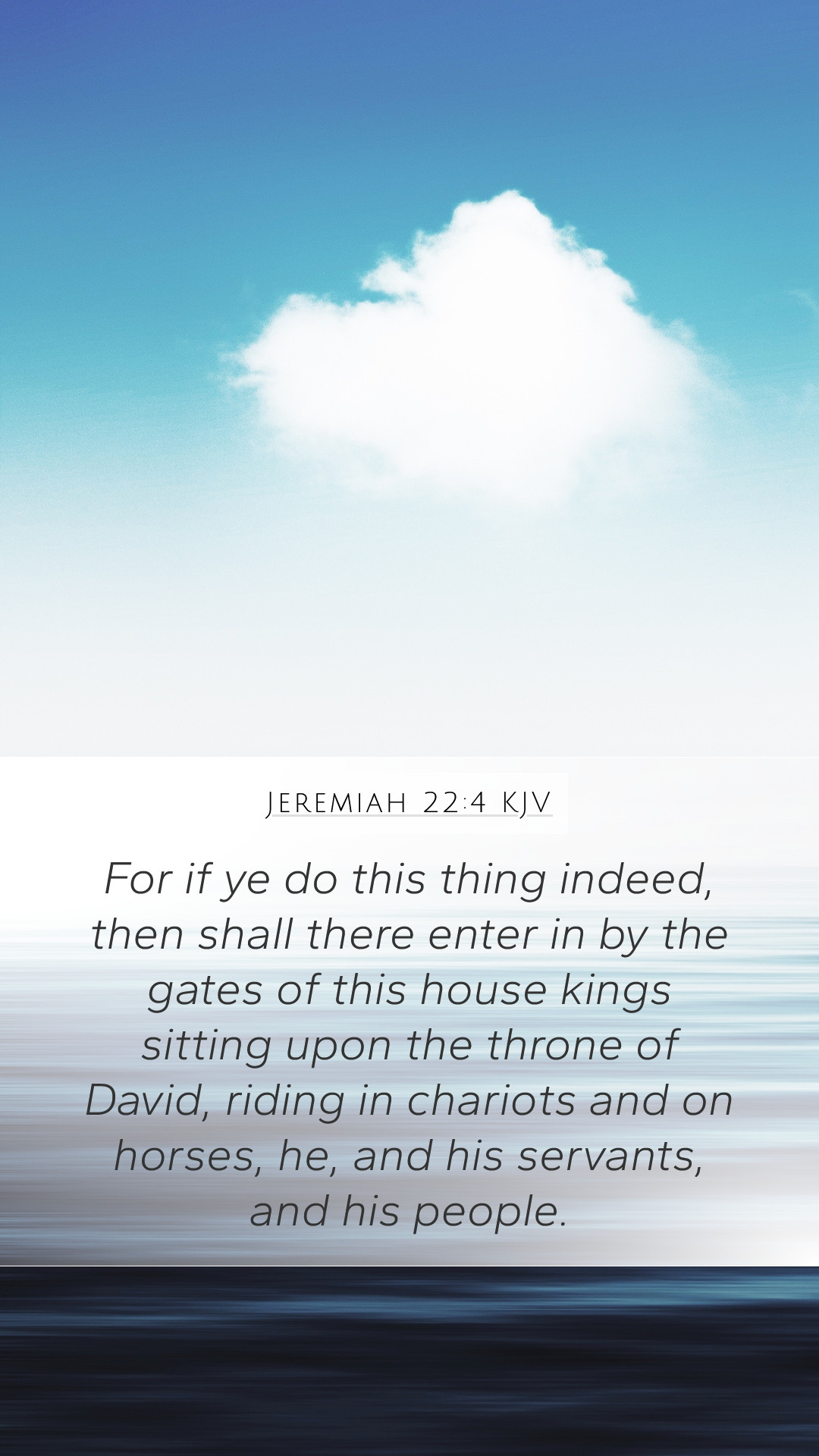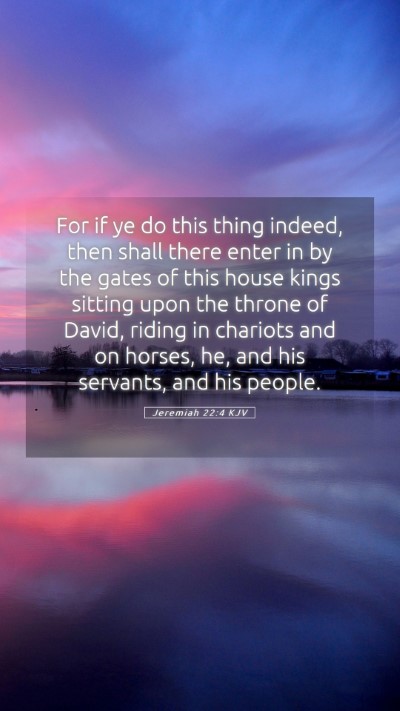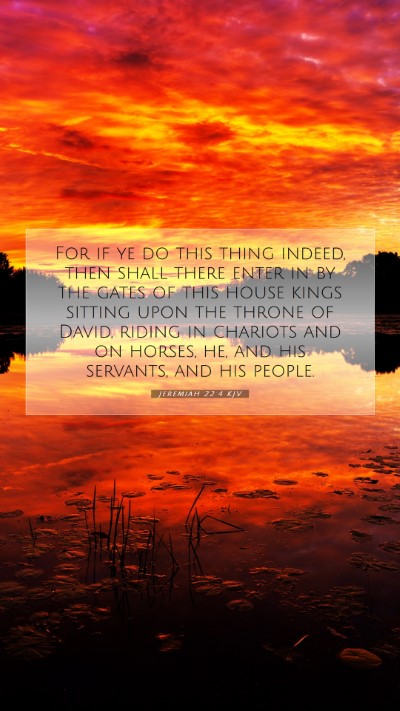Bible Verse Meaning and Commentary: Jeremiah 22:4
Jeremiah 22:4 states, "For if ye do this thing indeed, then shall there enter in by the gates of this house kings sitting upon the throne of David, riding in chariots and on horses, they, and their servants, and their people." This verse is part of a divine message regarding the consequences of leadership and governance in ancient Israel.
Summary of Jeremiah 22:4
This verse emphasizes the importance of righteous leadership and adherence to God's commands, promising blessings and prosperity to those who follow divine guidance. It speaks of the significance of kings who abide by God's will, symbolizing hope for a restored Israel where covenant promises are fulfilled.
Insights from Commentaries
-
Matthew Henry:
Henry highlights that this passage serves as a conditional promise. The prophetic declaration implies that obedience to God's statutes will result in the prosperity of the Davidic line. The expectation of kings riding into the city signifies peace, triumph, and God's favor.
-
Albert Barnes:
Barnes comments on the historical context, noting that this verse was directed towards Jehoiakim, urging him to embrace justice and righteousness. The assurance of kings within the gates symbolizes the proper functioning of leadership when it aligns with divine principles.
-
Adam Clarke:
Clarke focuses on the symbolic meaning of the chariots and horses, which represent strength and authority in biblical times. The verse anticipates a future where the throne of David is operational and prosperous, contingent upon the leaders' fidelity to God's laws.
Contextual and Theological Meaning
The chapter in which this verse is found addresses the corruption and moral decay of leadership in Judah. Jeremiah, as God's prophet, delivers a message calling for reform and accountability. The reference to the "throne of David" is significant as it connects to God's covenant with David, promising that his lineage would endure. This is foundational for understanding God's faithfulness despite human failure.
Conditional Covenant
The verse outlines a conditional covenant, where God's blessings are linked to the actions of leaders. This mirrors themes found throughout Scripture where obedience yields blessings, and rebellion incurs punishment. The promise indicates a divine willingness to restore and bless if the leaders choose to act righteously.
Cross References
- 2 Samuel 7:12-13: God's promise to David about his lineage.
- Jeremiah 21:11-12: A call for justice for the house of Judah.
- Isaiah 32:1: The promise of a righteous king reigning in justice.
Application and Relevance
This verse is pertinent for modern readers who seek to understand the significance of righteous leadership in society. It can foster discussions in Bible study groups about the qualities of good leadership and how they apply to today’s context.
Understanding Scripture in Daily Life
Applying the insights of Jeremiah 22:4 requires assessing our leadership—whether in homes, workplaces, or communities. It challenges us to reflect on our commitments to ethical governance and the importance of aligning our actions with divine expectations.
For Bible Study
Utilizing Bible study tools and Bible study guides, groups can delve deeper into the implications of this verse. Studies can explore themes of justice, accountability, and the nature of God’s promises.
Conclusion
Understanding the meaning of Bible verses, such as Jeremiah 22:4, encourages deeper engagement with Scripture. It reveals the ongoing relevance of God's Word and the lessons it holds about leadership, accountability, and divine promise.


